STOP GENOCIDE
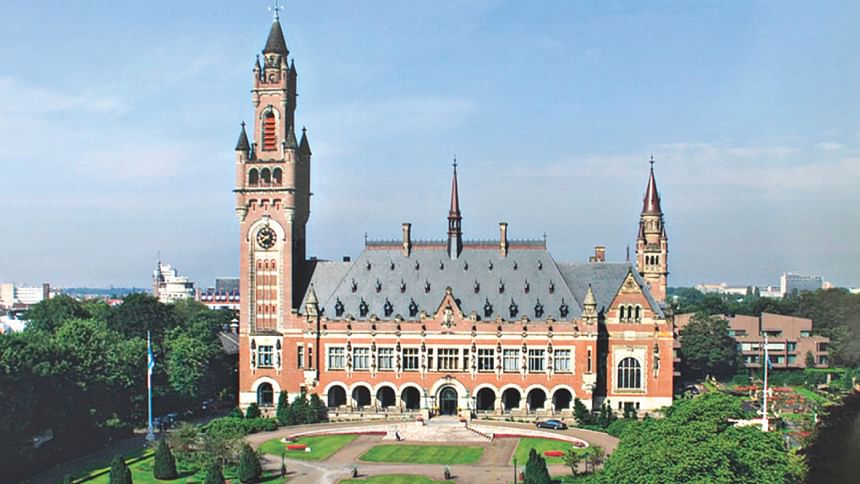
Mass rapes, the burning alive of Rohingya families in their homes and the killing of children were described by The Gambia’s legal team as it set out its genocide case against Myanmar at the highest UN court yesterday.
Myanmar’s leader Aung San Suu Kyi, a Nobel Peace laureate, looked on impassively as the alleged atrocities were detailed on the first of three days of hearings at the International Court of Justice in The Hague. The case was instituted by The Gambia against Myanmar in November.
“All that The Gambia asks is that you tell Myanmar to stop these senseless killings,” Gambia’s Justice Minister Abubacarr Tambadou said in opening comments.
“To stop these acts of barbarity and brutality that have shocked and continue to shock our collective conscience. To stop this genocide of its own people,” he said.
Around 740,000 Rohingyas fled to neighbouring Bangladesh after a bloody crackdown by the Myanmar military in 2017 that UN investigators have already described as genocide.
The Gambia is arguing that Myanmar’s forces carried out widespread and systematic atrocities that constituted genocide, and that in doing so Myanmar violated its obligations under the 1948 Genocide Convention, writes Reuters.
It asked the court to order special measures to protect the Rohingyas. The so-called provisional measures would act as a kind of restraining order for the Myanmar military until the case is heard in full.
“I stand before you to awaken the conscience of the world and arouse the voice of the international community,” said Tambadou, a former prosecutor at the tribunal into the Rwanda’s 1994 genocide.
“In the words of Edmund Burke, ‘The only thing necessary for the triumph of evil is for good men to do nothing’.”
“Another genocide is unfolding right before our eyes yet we do nothing to stop it,” he pointed out. “This is a stain on our collective conscience. It’s not only the state of Myanmar that is on trial here, it’s our collective humanity that is being put on trial.”
Tambadou went on, “Every day of inaction means more people are being killed, more women are being raped and more children are being burned alive. For what crime? Only that they were born different.”
Suu Kyi is set to speak in Myanmar’s defence today. She is expected to argue that her country was conducting legitimate operations against Rohingya militants and that the ICJ has no jurisdiction in the case.
Her decision to personally lead the southeast Asian nation’s case at the world court has proved popular at home, where the Rohingyas are widely regarded as illegal immigrants despite having lived there for decades.
During the hearing, Gambia’s lawyers yesterday said the appearance of huge billboards across Myanmar in recent weeks featuring pictures of Suu Kyi with three smiling generals showed she was “in it together” with the army that once held her captive.
“It can only have been intended to show that they are all in it together and that Myanmar has absolutely no intention of holding its emboldened military leadership accountable,” lawyer Paul Reichler told the court.
Myanmar faces a number of legal challenges over the fate of the Rohingyas, including a probe by the International Criminal Court -- a separate war crimes tribunal in The Hague -- and a lawsuit in Argentina.
The country has previously denied almost all allegations made by refugees against its troops, including of mass rape, killings and arson, and promised to punish any soldiers involved in what it says were isolated cases of wrongdoing.
‘GAMBIA! GAMBIA!’
Outside the court, dozens of Rohingyas demonstrated to demand justice for victims. Hours earlier in Yangon, Myanmar’s commercial capital, thousands of people had rallied in support of Suu Kyi.
Once feted in the West, Suu Kyi has faced mounting international criticism over the Rohingya crisis. But she has remained popular at home since coming to power in 2016 as part of the transition to democracy after decades of military rule.
In the Bangladeshi refugee camps yesterday, hundreds gathered on a hilltop and chanted, “Gambia! Gambia!”, pumping their fists. Some offered special prayers at mosques in the camps and many others were fasting.
“Our people were killed, our children were thrown into fire, our women were raped, our houses were burnt down. All we want is a fair trial,” said Nurul Amin, 30.
A group of some 50 pro-Rohingya protesters gathered outside the gates of the ICJ for the hearing, carrying banners saying: ‘Say yes to Rohingya, justice delayed is justice denied” and “Stop Burma military attack Rohingya.”
“Today is the start for our right to justice,” said Mohammed Harun, 49, who travelled from London for the hearings. “It’s international justice day for Rohingya,” he told AFP.
A small group of Suu Kyi supporters also unfurled a banner outside the court with the Myanmar leader’s face on it saying: “ We love you, we stand with you!”
“Suu Kyi is the only person who can solve this problem,” supporter Swe Swe Aye, 47, told AFP.
‘GENOCIDAL INTENT’
This week’s proceedings, before a panel of 17 judges, will not deal with whether Myanmar is guilty of the most “serious international crime”, but will focus on Gambia’s request for provisional measures. A decision on that request is expected within weeks.
The tribunal has no enforcement powers, but its rulings are final and carry significant legal weight. Its judges have only once before ruled that genocide was committed -- in the 1995 Srebrenica massacre in Bosnia.
The Gambian legal team aimed to prove that this was not just sporadic violence, it was ethnic cleansing that stemmed from unjustifiable intolerance.
Andrew Lowenstein, a partner at Foley Hoag LLC, the legal team representing The Gambia, presented the massacres of the villages of Tula Toli and Chut Pyin as an example.
“The first round of shooting was like a rain of bullets. The second round was slow as the soldiers killed the men individually. They aimed a gun at each man and shot,” Lowenstein stated, reading out descriptions of the Tula Toli massacre from the UN fact-finding mission’s report.
“Soldiers then turned to the women and children who, after being separated from the men, were forced to sit in a lowered area on the shore. Some of the children were shot, some thrown into the river, and others thrown onto a fire.”
He then continued to describe how the women were gang-raped, locked inside their houses and the houses then set on fire.
The lawyer also presented satellite images captured during the time when these villages were burning to prove how only Rohingya homes were being set on fire, while Buddhist Rakhine homes were being spared.
“The fact that Myanmar has genocidal intent is shown by its toleration for hate rhetoric and public hatred of the Rohingya,” he said.
“The fact-finding mission also concluded that Myanmar’s genocidal intent is evident in its lack of remorse. The Tatmadaw’s actions are glorified.”
Another lawyer, Tafadzwa Pasipanodya, presented how the Rohingyas placed in internment camps, long before the violence of 2017.
Again citing the UN report, the lawyer described how after the 2012 violence in the Rakhine State, the population was cordoned off into military-controlled camps surrounded by barbed wires, and they were not allowed freedom of movement.
“We believe that the evidence is not just sufficient, but it is overwhelming. The court has never had such comprehensive or such compelling evidence of the commission of genocidal acts as it has before it now,” commented Paul Reichler, the head of the legal team.
“The genocide in Rwanda was a failure of humanity that can easily happen again. Mr President, tragically, it has happened again, in Myanmar. The time to prevent further genocide is now, because nothing less will protect the Rohingya from further destruction as a group,” he concluded.

 For all latest news, follow The Daily Star's Google News channel.
For all latest news, follow The Daily Star's Google News channel. 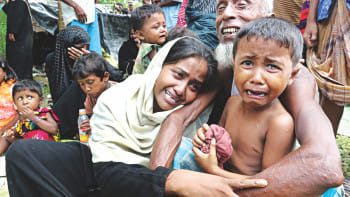


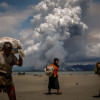


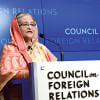
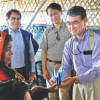


Comments